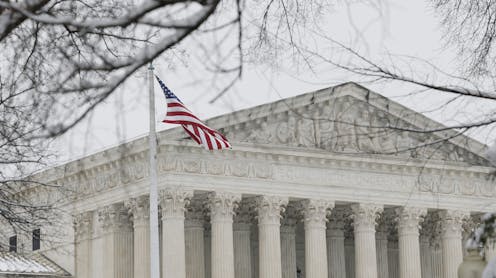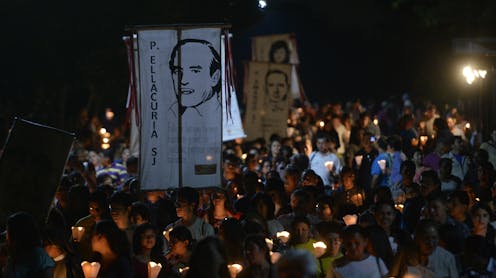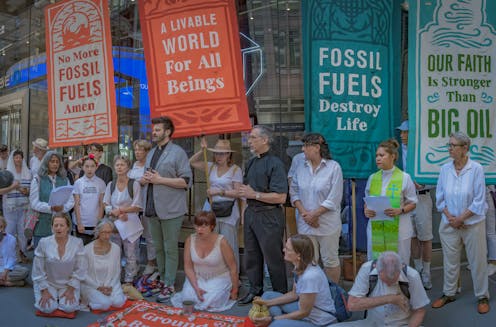Leaving the right to be forgotten in Google's hands hasn't broken the internet yet
 Right to be forgotten: shred data not reputations.AlexanderStein
Right to be forgotten: shred data not reputations.AlexanderSteinWhen the “right to be forgotten” was established in the European Union, allowing people to have inaccurate and potentially harmful information removed from search engine results, there were concerns it would be misused – for example by those wishing to hide information about them that is in the public interest, such as reports of criminal wrongdoing.
Now, some months after the Google Spain v Costeja González case in the Court of Justice of the European Union which established the right, we have a better idea what sort of requests are being made thanks to transparency reports from Google and other search engines.
The picture that emerges is that Google appears to be applying the ruling fairly well. Apparently inappropriate or ineligible requests are denied, such as criminals attempting to remove reference to news reports of their convictions, while ostensibly sensible requests, such as removing the names of rape victims, have been granted.
But Google has gone to some effort to cast doubt on the viability of the right to be forgotten, organising several panel discussions across Europe. At the UK meeting David Jordan, BBC’s head of editorial policy, highlighted a couple of cases in which BBC content had been removed from search engine results, including links to a report about the trial of two convicted Real IRA members. He then called for greater care for the public’s “right to remember”.
In a nutshell, the arguments used against the right to be forgotten are, first, those cases where links are removed inappropriately and, second, arguments on behalf of the public’s right to know or freedom of speech. The validity of these arguments rests on what the ruling actually says and how Google is applying it when removing links.
Private vs public rights
The right to be forgotten mostly covers the type of information that is liable to affect significantly the “fundamental rights to privacy and to the protection of personal data” – the sort of things enshrined in the European Convention on Human Rights.
The ruling specifically aims to seek a fair balance between those rights and the public’s right to information – there’s no unlimited right for anyone to remove anything from the web they don’t like. The decision to grant or deny requests (made via its form) rests with Google, although those denied by Google can apply to have their case heard in court.
In which case it is Google that is directly responsible for any poor decisions. One could even speculate that it is in Google’s best interest to allow some of these inappropriate recipients to get through the net, as they would tend to call the original ruling into question.
I’m not saying this is what Google is doing, but the question must be asked as to why inappropriate requests (such as that of the BBC article) remain hidden even after third parties have highlighted their inappropriateness. There is already an existing mechanism that helps to remove false positives, such as in the notice and take down procedures for material which infringes copyright. This has been used frequently over the years to remove content from Google’s services such as YouTube and others – and to restore content affected by mistaken or malicious removal requests following complaints.
The right to be forgotten need not be in conflict with the right to freedom of speech. A court in the Netherlands has used the Google Spain case to deny a request to remove links to potentially damaging information in search results. The plea came from the owner of an escort agency who was convicted for his part in attempting to arrange a contract killing – a matter that is currently under appeal. The Dutch court refused the request, remarking that the Google Spain ruling did not intend to protect individuals against all negative communications on the internet and that any demand to have links removed would have to be balanced by the existing rights of freedom of speech with the right to privacy.
Keeping track of what’s gone
Is there anything that the ruling’s critics can do to perpetuate information online and ensure that links are remembered? The BBC has suggested it will create a repository of links removed from search engines, similar to the US project Chilling Effects which hosts links removed due to alleged copyright violations. This would enhance transparency and help the public find out more about removed links, but it’s unlikely to have an effect on the right to be forgotten. After all, Chilling Effects has existed since 2001 without having any effect on the Digital Millennium Copyright Act under which copyright complainants can have links removed.
It’s still too early to analyse the full effect of the ruling that has created the right to be forgotten. But I remain unconvinced by the arguments against it. On the contrary, the release of private photographs of celebrities and the speed with which these were removed from search engine results around the world remind us that there are good reasons why we need such a mechanism. The Google Spain ruling gives the average person the same rights that so far have been enjoyed mostly by the rich and famous.
Andres Guadamuz does not work for, consult to, own shares in or receive funding from any company or organisation that would benefit from this article, and has no relevant affiliations.
















